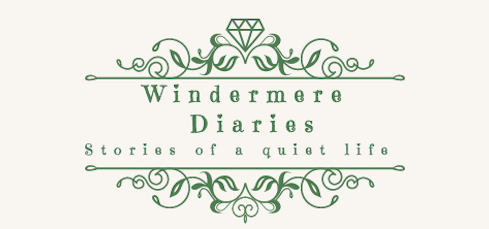It was a wet afternoon on the taxi rank today, improved hugely by an excellent book: a novel about living in London which has long since been my fantasy about where I will finish up when fame and fortune finally discover me as one day they undoubtedly will. I was entirely immersed in a soporific yarn involving nannies and shopping and being married to a merchant banker, when a couple came up and wanted to go to Coniston.
We don’t often get requests to go to Coniston, so I was pleased: not least because the fare from the taxi rank is thirty six quid: but also because I have got a long history with Coniston.
It was the first place in the Lakes that I truly fell in love with, on holiday when I was probably about ten: something about the sheer towering presence of the fells there, huge and bleak and mossy, rearing up from nothing out of the valley, grey and silent and misty and unconquerable.
Actually they are perfectly conquerable: even I, in my generally ageing and unfit state, have managed to stagger up to their summits on more than one occasion. Deer and sheep conquer them every day, and so do lots of tourists with plastic-covered maps and orange jackets: but that isn’t the point. The point is that these fells surround Coniston on three sides, with the lake on the fourth, filling your gaze with wilderness and giving the place an air of isolation and remoteness.
We lived in Coniston for a long time. I buried somebody I loved in the bleak graveyard: and married Mark in the little slate church and brought my baby back there to our house. Numbers One and Two Daughters went to school there, for the last few years of their wild heathen childhood. They learned to swim in the lake and leapt from the white plunging waterfalls. They begged boats from the boat-hire boys and took them out to the islands. They moored in the centre and spent long summer days swimming. They sank one once: and incurred the wrath of the boat-boys, who were somehow persuaded to forgive them in the end. They caught fish and (after a few days ripening) posted them through the letterboxes of grumpy neighbours who didn’t forgive them, or me for laughing. We lived in a flat above the chip shop in the beginning, and they occupied themselves on summer evenings daring each other to more and more dreadful wickednesses: our neighbour was once almost assaulted by an irate man who had been standing inoffensively in the queue for chips and gravy when some cold spaghetti bolognese landed on his bald head to the accompaniment of badly-muffled giggles. I drank wine with friends there and fought with people and broke my heart and wept: and fell in love and wept some more. I grew vegetables and sawed logs and walked and dived off the jetty and dreamed and worked and lived in Coniston in the shadow of the massive fells.
We drove over there through the drizzle: along winding roads overhung with coppery bracken and past the little tarn where the swans nest every year, past the farm with its Elizabethan gallery and signs advertising their own beef, past the row of yew trees and along the floor of the valley to the first of the solid grey houses of the village.
“What’s it like in Coniston?” my customers asked, wiping the steam off the windows and peering out at the ancient oak by the old village hall.
I thought about it, and explained the essence of the place as well as I could as they fished about for their thirty six quid.
“It’s a long way to go to a supermarket,” I said, “and it rains an awful lot.”

1 Comment
What about Swallows and Amazons? John and Nancy are going to be very upset, not to mention Titty! ………..I told you not to mention Titty.